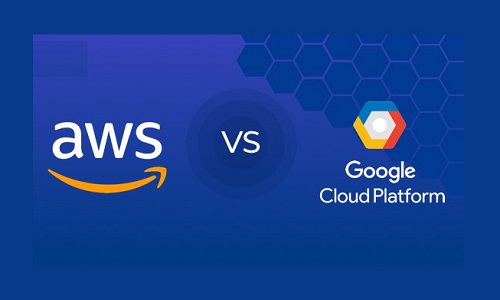
From AWS to GCP
As a software engineer familiar with Amazon Web Services (AWS), you may be feeling a bit overwhelmed as you embark on a new project that requires you to work with Google Cloud Platform (GCP). However, there’s no need to worry! While there are certainly differences between the two platforms, there are also many similarities that will make your transition smoother. With a bit of learning and exploration, you’ll be up and running on GCP in no time.
One of the first things you’ll notice when working with GCP is that the terminology and organization of services is different from AWS. For example, in AWS, you might be familiar with using Amazon Elastic Compute Cloud (EC2) for virtual machine instances, while in GCP, you would use Compute Engine. However, the core concepts behind these services are largely the same. Both offer scalable, virtualized environments for running your applications and services.
Another key difference between the two platforms is the way that they are priced. While AWS uses a pay-as-you-go model, GCP offers both pay-as-you-go and sustained use discounts. This means that if you consistently use a certain amount of resources over a month, you may be eligible for a discount on those resources. It’s important to understand the pricing models for both platforms and how they apply to your specific use case in order to choose the most cost-effective option.
One of the major benefits of GCP is its strong focus on machine learning and artificial intelligence (AI). If you’re interested in working with these technologies, GCP offers a number of powerful tools and services, including TensorFlow, Cloud AI Platform, and Cloud AutoML. These tools can make it easier to build and deploy machine learning models, even if you’re new to the field.
One thing to keep in mind as you migrate to GCP is that the platform has a number of additional security features and controls compared to AWS. This includes features like Cloud Identity and Access Management (IAM), which allows you to control access to your resources, and Cloud Security Scanner, which can help you identify potential vulnerabilities in your applications.
In summary, while there may be some initial learning curve as you transition from AWS to GCP, the platforms have many similarities, and you’ll find that much of your existing knowledge is directly applicable. With a bit of exploration and experimentation, you’ll be up and running on GCP in no time. So, don’t be afraid to take the first step and start using GCP services.
AWS Services | GCP Equivalent
| AWS | GCP |
|---|---|
| Elastic Compute Cloud (EC2) | Compute Engine |
| Amazon S3 | Cloud Storage |
| Amazon Elasticache | Cloud Memorystore |
| Amazon Lambda | Cloud Functions |
| Amazon DynamoDB | Cloud Bigtable |
| Amazon VPC | Cloud Virtual Network |
| Amazon EMR | Cloud Dataproc |
| Amazon Kinesis | Cloud Dataflow |
| Elastic Block Store (EBS) | Persistent Disk |
| Simple Storage Service (S3) | Cloud Storage |
| Relational Database Service (RDS) | Cloud SQL |
| Elastic Load Balancer (ELB) | Cloud Load Balancing |
| Simple Queue Service (SQS) | Cloud Pub/Sub |
| Identity and Access Management (IAM) | Cloud IAM |
| Route 53 | Cloud DNS |
| CloudFront | Cloud CDN |
| CloudFormation | Deployment Manager |